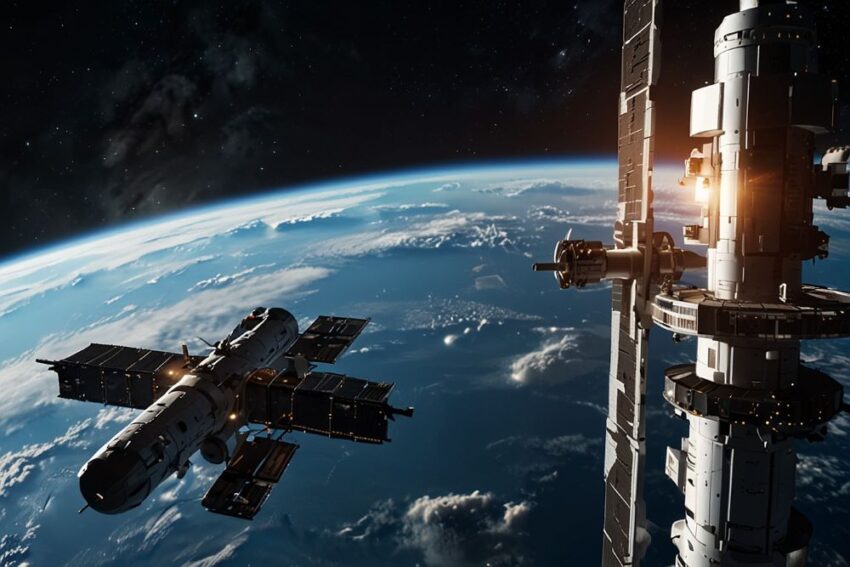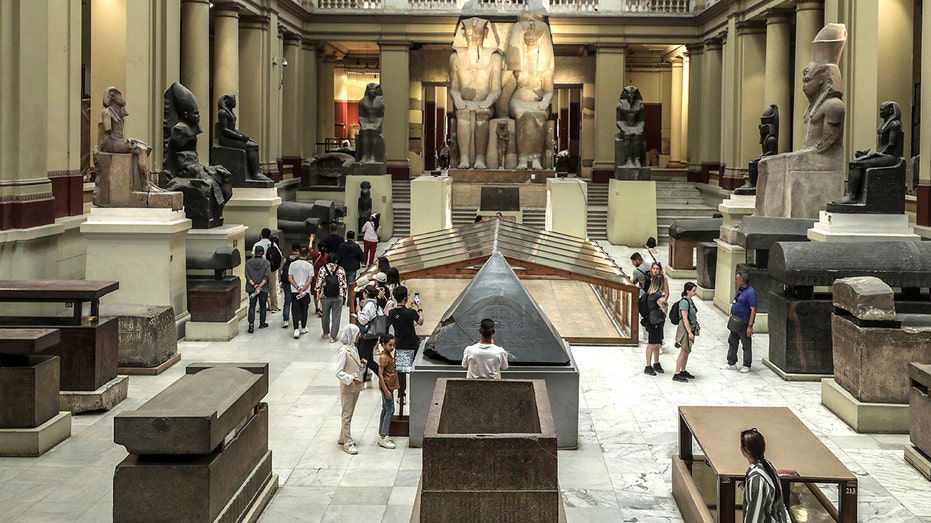- by foxnews
- 02 Oct 2025
The Retirement of the ISS in 2030 and the Rise of Commercial Space Travel: Here's What the Future Holds in Store
The retirement of the ISS in 2030 marks the end of an era in human space exploration. As the ISS concludes its groundbreaking mission, it will open the door to a new phase of space exploration led by commercial ventures. This shift signals the rise of commercial space travel, where private companies are set to take charge of space stations and other space-related activities. With space stations expected to be operated by commercial entities, the future of space exploration is becoming more diversified and accessible.
- by travelandtourworld
- 01 Oct 2025
- in travel

The retirement of the ISS in 2030 marks the end of an era in human space exploration. As the ISS concludes its groundbreaking mission, it will open the door to a new phase of space exploration led by commercial ventures. This shift signals the rise of commercial space travel, where private companies are set to take charge of space stations and other space-related activities. With space stations expected to be operated by commercial entities, the future of space exploration is becoming more diversified and accessible.
These companies are not just building space infrastructure; they are shaping a new frontier for scientific research, tourism, and even business opportunities in orbit. The retirement of the ISS and the subsequent rise of commercial space travel present exciting possibilities for humanity's future in space, making space more open and inclusive for everyone.
Launched in 1998, the ISS has been a remarkable symbol of international collaboration, with astronauts from around the world conducting scientific research and experiments in space. The station has not only advanced scientific knowledge but also enabled the development of technologies that benefit life on Earth. However, like all space missions, the ISS has a finite lifespan, and the time has come for it to retire.
To ensure a smooth transition from the ISS to privately operated space stations, NASA has launched its Commercial Low Earth Orbit Destinations (CLD) program. This initiative aims to support the development of commercial space stations by entering into agreements with private companies to design, develop, and operate these stations.
As part of its strategy, NASA has opened up new partnership opportunities, which include funding agreements that encourage the participation of the private sector in space exploration. In September 2025, NASA announced its Phase 2 partnership proposals, which are designed to facilitate industry-led space station development. These partnerships are aligned with industry schedules, ensuring that commercial stations will be ready to step in as the ISS winds down.
Axiom Space has already begun construction of its first commercial module, which will be launched in 2027. The company envisions a modular station capable of hosting astronauts, conducting cutting-edge research, and supporting private sector activities in LEO.
Vast Space, a California-based startup, is another key player in the development of commercial space stations. The company is working on the Haven-1 space station, which will offer a unique feature: artificial gravity. Unlike the ISS, which operates in a weightless environment, Vast Space's design aims to simulate gravity, potentially alleviating the negative health effects that astronauts experience during long-duration missions.
This technology could revolutionize human spaceflight, allowing for extended missions without the usual physical health consequences of microgravity. Vast Space is set to launch the Haven-1 station in 2026, providing a new frontier for both space research and tourism.
Voyager Technologies, in collaboration with Airbus, is developing Starlab, a commercial space station designed to support scientific research and industrial activities in space. Starlab is planned to be assembled in a single launch, using SpaceX's technology to minimize costs and improve operational efficiency. This innovative approach could set Starlab apart from other commercial stations by offering a cost-effective solution for space-based activities.
The rise of commercial space stations is not a purely American endeavor. Around the world, nations and private companies are preparing for the future of space exploration. Axiom Space is already exploring partnerships with India's Indian Space Research Organisation (ISRO) to utilize Indian rockets for future space missions. This collaboration highlights the increasing importance of international partnerships in space exploration, with private companies working alongside government agencies to build the future of space infrastructure.
As the ISS nears its retirement, the focus shifts to the next generation of space stations. Commercial companies like Axiom Space, Vast Space, and Voyager Technologies are at the forefront of this transition, each with their unique vision for the future of space. These companies are not only building the next phase of space infrastructure but are also creating new opportunities for scientific research, commercial activities, and space tourism.
The possibilities are vast, and the opportunities are boundless. As we approach 2030, the commercial space race is only just beginning, and the world is watching with anticipation.
- by foxnews
- descember 09, 2016
Museum's ancient bracelet theft joins list of other priceless artifacts stolen and destroyed worldwide
A priceless bracelet belonging to Pharaoh Usermaatre Amenemope was recently stolen from Cairo's Egyptian Museum and melted down by thieves for $4,000, echoing similar thefts over time.
read more




